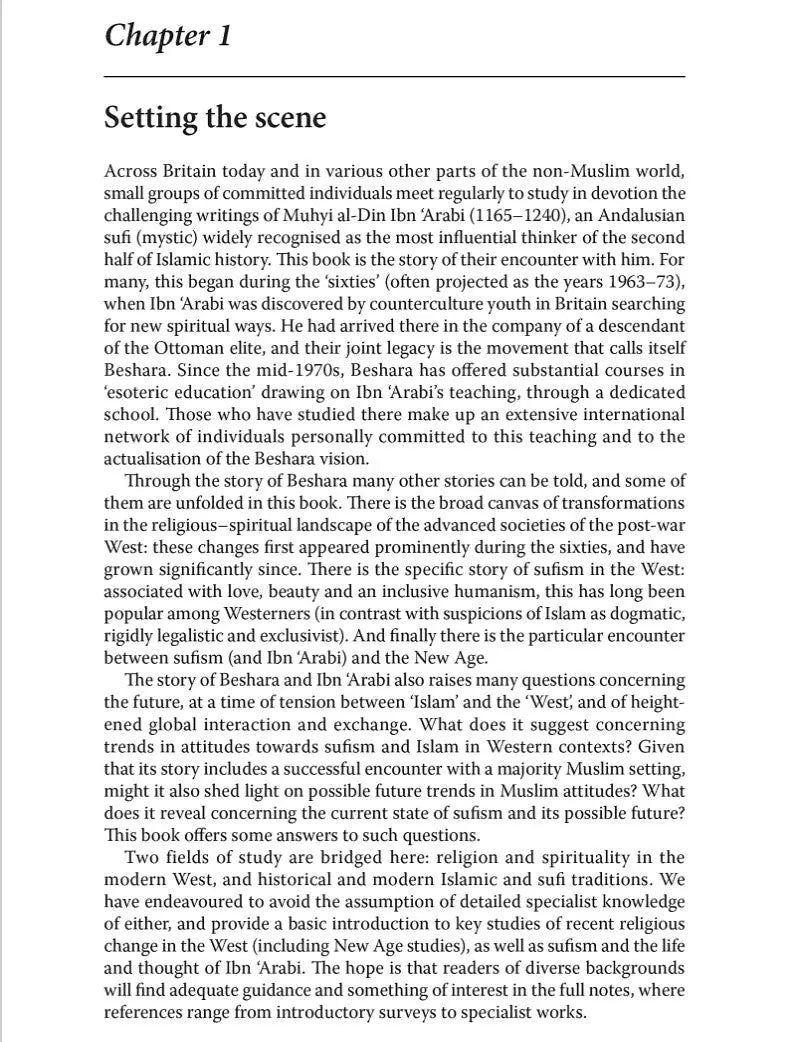About The Book
Investigating sufi-inspired spirituality in the modern world, this interdisciplinary volume focuses on Beshara, a spiritual movement that originated in Britain in the 1970s.
Beshara's main inspiration is the Andalusian mystic Muhyiddin Ibn ‘Arabi (d.1240), possibly the most influential thinker of the second half of Islamic history. Ibn ‘Arabi's teaching was brought to Britain by Bulent Rauf (d.1987), a descendant of the Ottoman elite, and discovered there by counterculture youth searching for new spiritual ways. Beshara is their joint legacy.
The first detailed analysis of the adoption and adaptation of Ibn ‘Arabi's heritage by non-Muslims in the West, Beshara and Ibn ‘Arabi is a study of the movement's history, teachings and practices. It explores the interface between sufism and the New Age, and the broader contemporary encounter between Islam and the West. Investigating from a global perspective the impact of cultural transformations associated with modernization and globalization on religion, this timely volume concludes by tracing possible futures of sufi spirituality both in the West and in the Muslim world.
This book is essential reading for anyone interested in religious studies and the sociology of religion, Islamic studies and Sufism, and issues of cultural and spiritual dialogue between West and East.
About The Author
Dr Suha Taji-Farouki is a specialist in modern Islamic thought. She obtained her PhD in Islamic Studies and Middle Eastern Politics from the University of Exeter in 1993. She is Lecturer in Modern Islam at the Institute of Arab and Islamic Studies, University of Exeter, and a Research Associate at the Institute of Ismaili Studies, London.
She has been a Lecturer in Modern Islam at the Centre for Middle Eastern and Islamic Studies at the University of Durham. She has also served as the Secretary of the European Association for Middle Eastern Studies. Dr Taji-Farouki is working on aspects of the legacy of Ibn Arabi in the 20th century.




